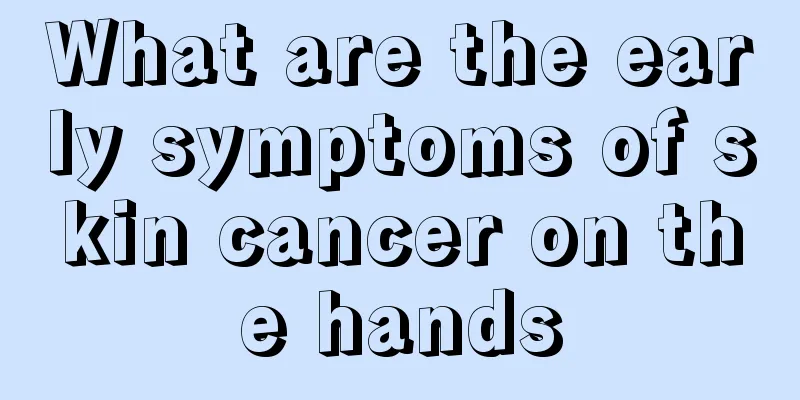How to care for nosebleeds caused by nasopharyngeal carcinoma

|
What is the color of nosebleed caused by nasopharyngeal cancer? How to take care of it? Nosebleed is one of the typical clinical symptoms of nasopharyngeal carcinoma. In the early stage of nasopharyngeal carcinoma, bloody nasal discharge or bloody nasal discharge from the mouth is more likely to occur than weight; in the late stage of rhinitis, heavy nosebleed may occur. Because the primary cancer breaks through the surface mucosa and causes runny nose, the nasal secretions often have blood streaks or blood clots, which is common after getting up in the morning and is one of the early symptoms. In the late stage of cancer ulceration, there may be purulent runny nose or a large amount of bleeding that is difficult to stop, and it may even be life-threatening. If a NPC patient has nose bleeding, the general care in life is as follows: First: Correct bad eating habits: Do not eat salted fish and pickled products. If the family disease incidence is high or a direct relative has a history of nasopharyngeal cancer, a regular physical examination of the nasopharynx should be conducted every year. Blood tests for EB virus can be performed during the physical examination. Second: pay attention to diet. Patients with nasopharyngeal cancer bleeding should eat more benign foods such as bitter melon, tomatoes, cabbage, houttuynia, purslane, etc. At the same time, we should avoid drinking alcohol and spicy and overheated foods. Third: Regularly do exercises such as neck rotation, teeth tapping, cheek puffing, smiling, and mouth opening. Patients with dry mouth can use pear slices in their mouths to relieve discomfort; patients with radiation pharyngitis can gargle with a mouthwash before meals and before going to bed. Fourth: If heavy bleeding is found, you should lie down immediately, tilt your head to one side, and highlight the bleeding in time to prevent coagulation and suffocation. At the same time, you should urgently notify the doctor to keep the airway open. The patient can also place an ice pack on the upper part of the nose or press the external carotid artery with your fingers to stop bleeding, cooperate with the doctor to block the nasal cavity to stop bleeding, and pull out the yarn after 24 to 48 hours. However, it is forbidden to blow the nose or pick the nose after the bleeding stops to prevent bleeding again. |
<<: How long can you live after surgery for advanced gastric cancer
>>: How to prevent lymphoma and what are the treatment methods
Recommend
Why do I feel uncomfortable in my stomach and always want to fart?
Some people in daily life can always endure stoma...
The difference between brown and black stool
There are always many patients suffering from gas...
How long is the incubation period of hepatitis A
Hepatitis A, also known as hepatitis A virus, is ...
What is the cause of big toe pain
In fact, foot bones are also very important for p...
What are the symptoms of low thyroid hormone?
Thyroid disease is directly related to the health...
What is the reason for long-term leg joint pain
Leg joint pain is related to many factors. Many p...
Misunderstandings in the Treatment of Hamartoma
Many patients have never heard of the word hamart...
What are the symptoms of facial neuritis during the recovery period
Many people will experience facial nerve paralysi...
What are the methods to remove Chinese medicine stains
When our bodies are under some health conditions ...
Are tulips poisonous? Can they be grown indoors?
Tulips are generally poisonous and may cause harm...
The hazards of electric heating knee pads
Many people have discomfort in their joints, so w...
How to treat a broken clavicle
A broken clavicle is quite serious because the cl...
What to do if you forget your brain
In daily life, everyone's brain is different....
Dietary care considerations for kidney cancer
The occurrence of kidney cancer can have a great ...
What is the best way to treat bile duct cancer
Do you know about bile duct cancer? Seeing this t...









